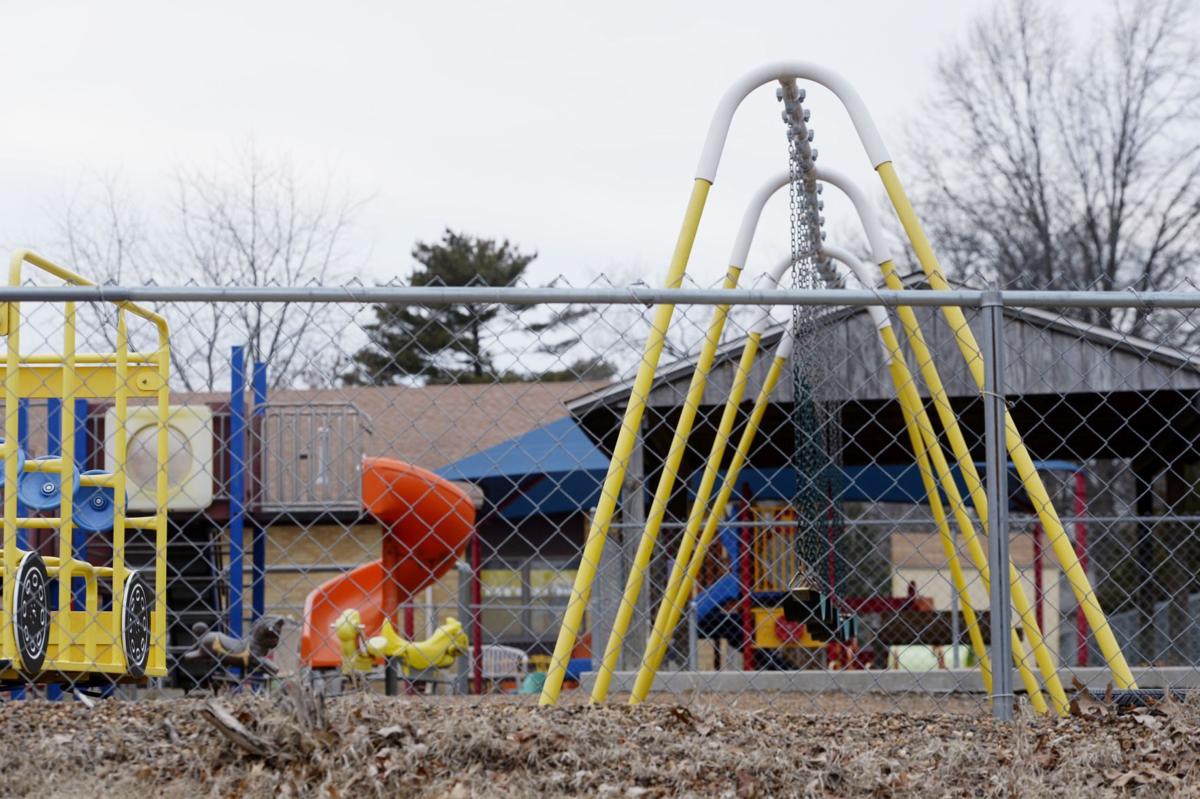U.S. Supreme Court rules in favor of congregation in Missouri church-state case

This photo taken Jan. 26, 2016, shows the playground at Trinity Lutheran Church in Columbia, Mo. (Annaliese Nurnberg/Missourian via AP)
WASHINGTON • The Supreme Court has ruled in a Missouri case that churches have the same right as other charitable groups to seek state money to pay for new playground surfaces and other non-religious needs.
The justices on Monday ruled 7-2 in favor of Trinity Lutheran Church of Columbia, Mo. The church sought a grant to put a soft surface on its preschool playground, but was denied any money even though its application was ranked fifth out of 44 submissions.
Chief Justice John Roberts said for the court that it "is odious to our Constitution" to exclude the church from the grant program. Roberts said that's true even though the consequences are only "a few extra scraped knees."
The case is Trinity Lutheran Church of Columbia vs. Carol S. Comer, the director of the Missouri Department of Natural Resources. At issue was a 19th-century state constitutional amendment that prohibits state resources from going to religious institutions.
Trinity Lutheran Church applied for a grant with Missouri's Scrap Tire Program. The grants buy recycled tires to resurface playgrounds. The grant program is funded solely by a fee collected on the sale of new tires. Trinity said the playground at its Learning Center was for children who attended the church's daycare. It also was used by neighborhood children after hours. Trinity was one of 44 applicants in 2012. The state awarded grants to 14 applicants.
The state denied Trinity's application, citing an amendment that states, "no money shall ever be taken from the public treasury, directly or indirectly, in aid of any church, sect or denomination of religion." The Blaine Amendment, which critics say developed from anti-Catholic sentiment, is in effect in Missouri and 37 other states.
Alliance Defending Freedom took up the cause for the church and fought the state's decision in court. The church lost in the 8th Circuit Court of Appeals and appealed to the U.S. Supreme Court. During oral arguments, justices saved their sharpest questions for James Layton, who was representing the state’s previous position — that a “bright line” should be maintained prohibiting state funds for state aid such as that sought by Trinity. In fact, justices asked, didn’t other state funds, such as police and fire protection, also benefit religious institutions?
In April, Gov. Eric Greitens, a Republican, announced he would allow religious institutions to apply for the same kind of state grants that were denied Trinity, and which formed the basis of the church’s case against the state.

This photo taken Jan. 26, 2016, shows the playground at Trinity Lutheran Church in Columbia, Mo. (Annaliese Nurnberg/Missourian via AP)
WASHINGTON • The Supreme Court has ruled in a Missouri case that churches have the same right as other charitable groups to seek state money to pay for new playground surfaces and other non-religious needs.
The justices on Monday ruled 7-2 in favor of Trinity Lutheran Church of Columbia, Mo. The church sought a grant to put a soft surface on its preschool playground, but was denied any money even though its application was ranked fifth out of 44 submissions.
Chief Justice John Roberts said for the court that it "is odious to our Constitution" to exclude the church from the grant program. Roberts said that's true even though the consequences are only "a few extra scraped knees."
The case is Trinity Lutheran Church of Columbia vs. Carol S. Comer, the director of the Missouri Department of Natural Resources. At issue was a 19th-century state constitutional amendment that prohibits state resources from going to religious institutions.
Trinity Lutheran Church applied for a grant with Missouri's Scrap Tire Program. The grants buy recycled tires to resurface playgrounds. The grant program is funded solely by a fee collected on the sale of new tires. Trinity said the playground at its Learning Center was for children who attended the church's daycare. It also was used by neighborhood children after hours. Trinity was one of 44 applicants in 2012. The state awarded grants to 14 applicants.
The state denied Trinity's application, citing an amendment that states, "no money shall ever be taken from the public treasury, directly or indirectly, in aid of any church, sect or denomination of religion." The Blaine Amendment, which critics say developed from anti-Catholic sentiment, is in effect in Missouri and 37 other states.
Alliance Defending Freedom took up the cause for the church and fought the state's decision in court. The church lost in the 8th Circuit Court of Appeals and appealed to the U.S. Supreme Court. During oral arguments, justices saved their sharpest questions for James Layton, who was representing the state’s previous position — that a “bright line” should be maintained prohibiting state funds for state aid such as that sought by Trinity. In fact, justices asked, didn’t other state funds, such as police and fire protection, also benefit religious institutions?
In April, Gov. Eric Greitens, a Republican, announced he would allow religious institutions to apply for the same kind of state grants that were denied Trinity, and which formed the basis of the church’s case against the state.